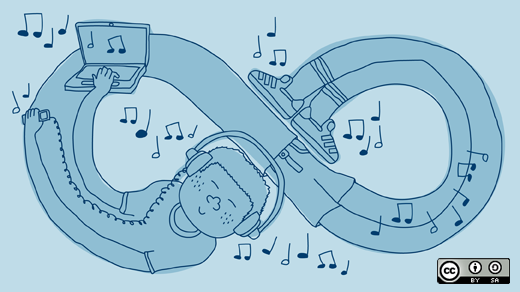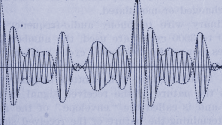I'm sitting in my living room listening to Thievery Corporation's Babylon Rewound on the home stereo. A lot of this glorious music is coming from the general vicinity of the speakers, but there is a significant part coming from hard to my left, about two meters to the left of the leftmost speaker.
Really? Between the recording, the playback hardware, and my brain, I am hearing stuff coming—quite clearly—not from the left speaker, nor the right, but from some place quite far away from both. How can this be?
This amazing illusion of musical space is one of many created by the recording and my auditory system; and it is sustained, in better or worse form, by the chain of hardware and software that sits between the recording and my ears. That chain of hardware and software can't make a flat, lifeless, and boring recording into something wonderful and awe-inspiring; but it can take a fantastic recording and make it flat, lifeless, and boring.
I don't know about you, but for me, life is too short to spend it listening to flat, lifeless, and boring music. So, in this series of articles, I hope to share with you some of the lessons I have learned about creating a great environment to enjoy music, starting when my good friend Pete patiently explained to me, back in 1973, that good audio equipment made a huge improvement to the enjoyment of recorded music.
The first thing I want to talk about is the way in which the music is preserved in recordings.
Recorded music
Recorded music has come to me in several formats over the years:
- as LP (long playing) records
- as 45s (one song per side)
- as cassettes
- as CDs (Wow! Perfect sound forever! Or not...)
- in various digital formats (MP3s, AACs, Oggs, FLACs)
Today I have in my possession several hundred CDs, several hundred more LPs, a few 7" 45s, a few more cassettes, and a growing number of music downloads.
I am going to focus on music in digital formats, stored somewhere on a hard drive, whether ripped from CD or purchased as downloads. Moreover, since I am a Linux kind of guy, I'm going to take a Linux kind of perspective on this topic.
But before I get into the details of digital formats, I'm going to cover some introductory material.
Where to get digital music
For those of you—like me—with CDs, by all means, rip them to disk as well and keep the CDs as deep backup. For this task, I tend to prefer GUI-based tools that use cdparanoia as their engine, such as Asunder, that let me get at the parameters used by cdparanoia (I tend to install the version in my distribution's repositories).
Watch out for the data these tools pick up from places like Grace Note (formerly CDDB) or MusicBrainz; it's a good starting point for track names, performers, and so forth, but in my experience it's far better to edit this data before you rip than to go looking for it afterward. Look for things like spelling errors in album or performer names, missing composer names in classical music, weird punctuation, missing album artist in compilations, and the like.
Another important consideration with respect to getting your music from CD—sometimes this is the cheapest way to find some music, and other times it's the only way. Perhaps because CD sales are suffering these days, it's not uncommon to find CDs at bargain prices. Also, many physical stores that sell used media have used CDs in decent shape at super-cheap prices. Finally, in countries other than the U.S., licensing restrictions often limit the availability of music downloads, but seldom the availability of CDs.
Of course, you can rip your LPs as well, if you have all the bits and pieces (LPs that you want to convert to digital, decent sound card that permits recording, record player, phono pre-amp, recording software like Audacity). For those of you who are old enough (or young enough, maybe?) to remember ripping your LPs to cassette to make mix tapes, this process will seem somewhat familiar.
Moving to music downloads, some artists make their music available (or allow their music to be available) at no cost or at user-selectable cost on sites like Bandcamp. Sometimes physical media are also available there.
A few other places I buy music downloads (including format information, which we'll discuss more in the next chapter):
- Bleep: Lots of modern stuff, especially electronica, in CD resolution and sometimes better, FLAC or WAV format, plus vinyl and CD. No download hassles.
- Boomkat: Again, tending to electronica, in CD resolution and sometimes better, FLAC or WAV format; no download hassles.
- Linn Records: Primarily classical, jazz, and Scottish folk. CD and higher resolution, FLAC and other formats, plus vinyl, CD, SACD. No download hassles.
- 7Digital: A ton of modern and classical, especially MP3 and WMA, but getting on the FLAC bandwagon, albeit mostly at CD resolution. No download hassles.
- Gimell Records: Home of The Tallis Scholars' recordings. CD and higher resolution, FLAC, and other formats. No download hassles.
There are many other sites that provide music downloads, but several of these have the egregious habit of requiring the use of downloading software that does not run (or at least, not readily) under Linux. ProStudioMasters requires the use of its Adobe Air-based client; HDTracks and Acoustic Sounds require the use of a piece of closed-source software that may operate under Wine. If you like their catalogs, please consider writing to them and asking (politely) for a way to download your purchases in Linux.
As I mentioned above, music downloads tend to have licensing restrictions that can make certain downloads unavailable in certain countries.
And a last point, returning to the listening experience: I would claim that improving one's listening skills will improve one's enjoyment of music, and I can think of no more straightforward way to do so than taking Philips' online course.
In my next article on this subject, I look at digital formats for Linux listeners.







19 Comments